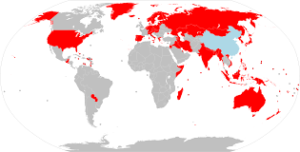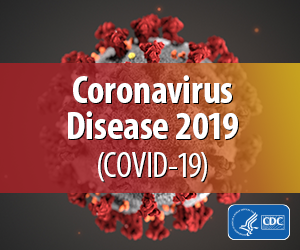Lipscomb students studying abroad are feeling the effects of the coronavirus (COVID-19) as it approaches pandemic levels.
After the virus reached areas of Northern Italy, which is reporting 400 confirmed cases, with only three of those cases coming as a result of travels to China, Lipscomb elected to evacuate the study abroad group staying in Florence. These students were moved to the Vienna campus for at least the next month, and then the situation will be reevaluated.
President Randy Lowry said in an email to the Lipscomb community that the university has been monitoring the situation for weeks, and one option would have been to return the students to the U.S. and have them continue their spring classes in an online format.
“Unfortunately, this option would also likely be the end of their study abroad experience,” Lowry said in the email. So the university decided upon Vienna.
“This option is only possible because, fortunately, none of the Florence students have visited an area or region impacted by the COVID-19 virus,” Lowry said. “Because our students’ safety and well-being are of utmost importance, we would not make this decision if it put our Vienna students at risk by introducing another student population that could be impacted by the virus.”
Students affected by this situation expressed gratitude that they are not being sent home, but the abrupt move is causing stress and disrupted plans that had been in place for months.
As of right now the Vienna campus, as well as the country of Austria, remains safe with only two cases reported in the entire nation. However, Lipscomb will continue to monitor the situation as the virus spreads and begins to affect life worldwide.

Map shows current countries affected by the coronavirus outbreak
Spring break mission trips could also be affected.
“With spring break on the horizon, I want to let you know that we are currently evaluating information from our partners at the U.S. State Department, International SOS and resources in our various destinations to make the best decisions possible about our upcoming trips,” said Tyler Kemmerer, the director of Lipscomb’s missions program, in an email sent to all students. “The safety and well-being not only of our students but also those we are going to serve are top priorities.”
In addition, Lipscomb is pushing the fundraising deadlines to accommodate this uncertainty.
As of the end of last week, there are were 59 confirmed cases, and no deaths had resulted from these cases, but the Centers for Disease Control and Prevention do not expect these numbers to hold, especially since the first case in the United State that did not come from China was recently discovered in California.
“Ultimately, we expect we will see community spread in this country [the U.S.],” said Benjamin Haynes, spokesman for the CDC, in a statement released Thursday afternoon. “It’s not so much a question of if this will happen anymore but rather more a question of exactly when this will happen and how many people in this country will have a severe illness?”
The biggest concern is that there is not currently a vaccine nor are there medications to treat this virus. While the CDC is actively searching for a cure, alternatives to medication are the best hope that communities have right now.
“Non-pharmaceutical interventions or NPIs will be the most important tools in our response to this virus,” said Haynes. “What these interventions look like at the community level will vary depending on local conditions.”
As international economies begin to suffer, it can be expected that everyday life in the United States may soon be affected not only by the virus but also by the economic outcome.

